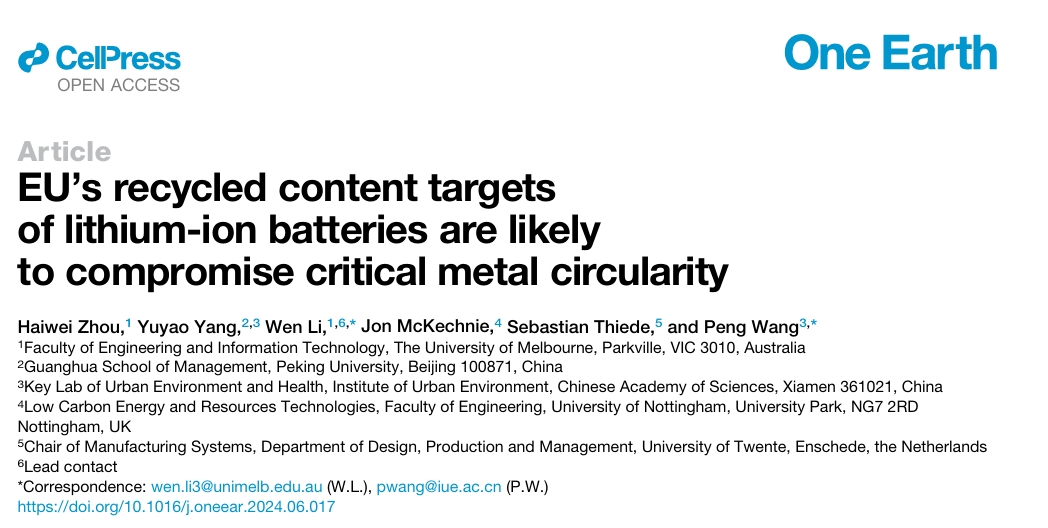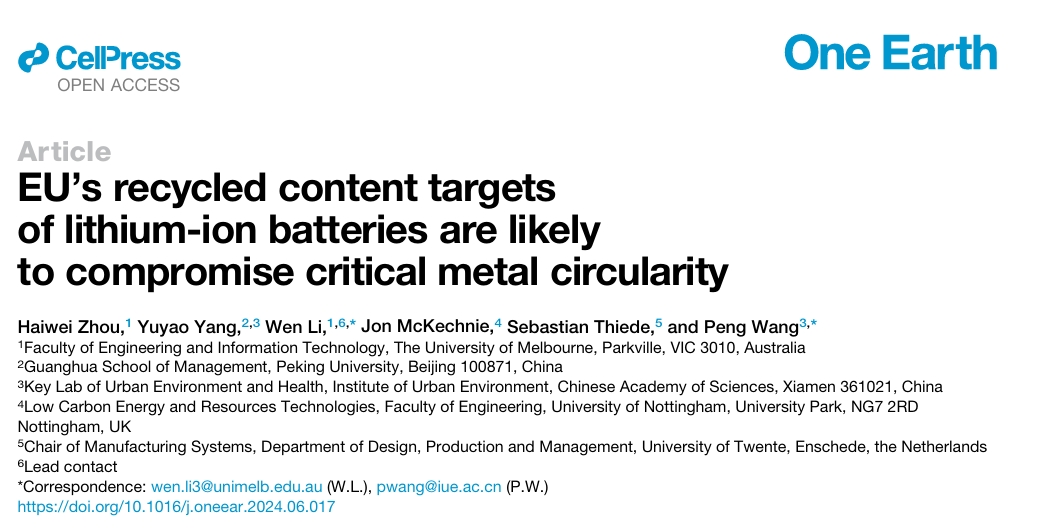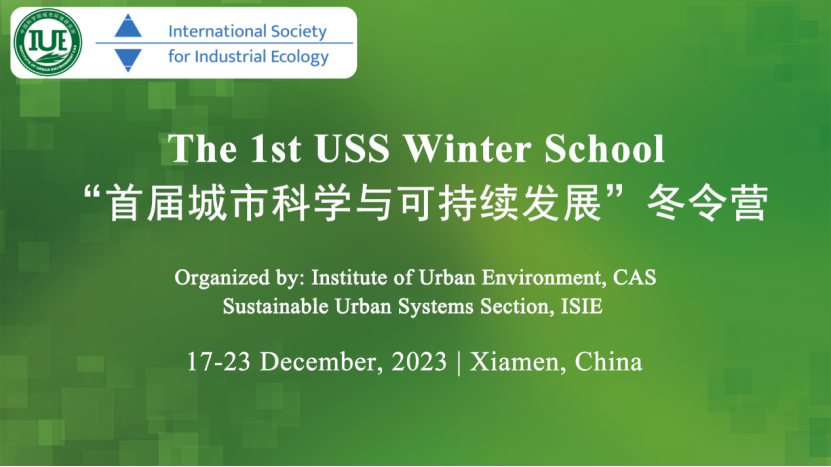EU’s recycled content targets of lithium-ion batteries are likely to compromise critical metal circularity
Zhou et al. 2024

Summary
Batteries, essential for a net-zero future, are highly dependent on critical metals, the extraction and supply of which inflict harm on society and the environment and are subject to geopolitical tensions. To reduce damages and secure supply, the EU has introduced ambitious targets for end-of-life battery recycling and critical metal recovery; however, the feasibility of such targets remains unclear. Here, to explore the impacts of the EU’s proposed recycled content (RC) targets on battery material circularly, we develop a comprehensive material flow analysis model for the EU’s lithium-ion batteries and consider different climate targets and battery chemistries, lifespans, and repurposing rates. Results show that achieving the EU’s RC targets in 2036, especially for cobalt, is challenging. The RC targets become more achievable via, e.g., maintaining a high rate of manufacturing waste, disincentivizing battery repurposing, and forcing the early retirement of batteries, which could, however, undermine battery material circularity. Our analysis suggests that the EU should remain flexible in its RC targets.
For full text, please visit: https://doi.org/10.1016/j.oneear.2024.06.017




